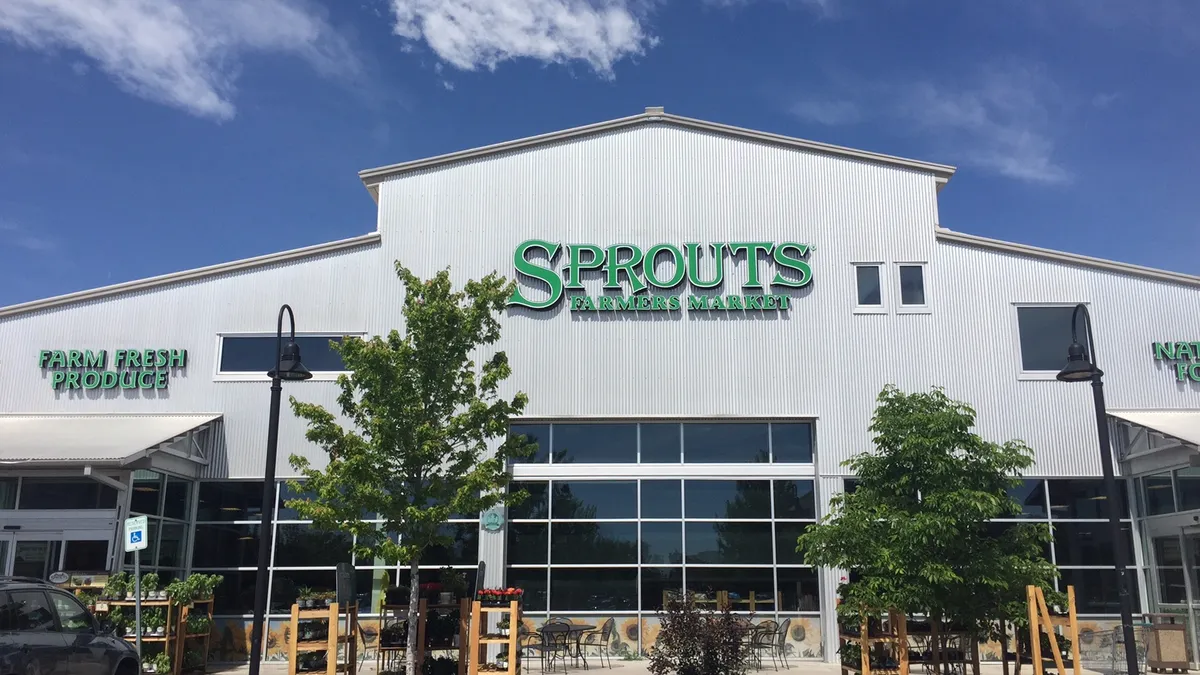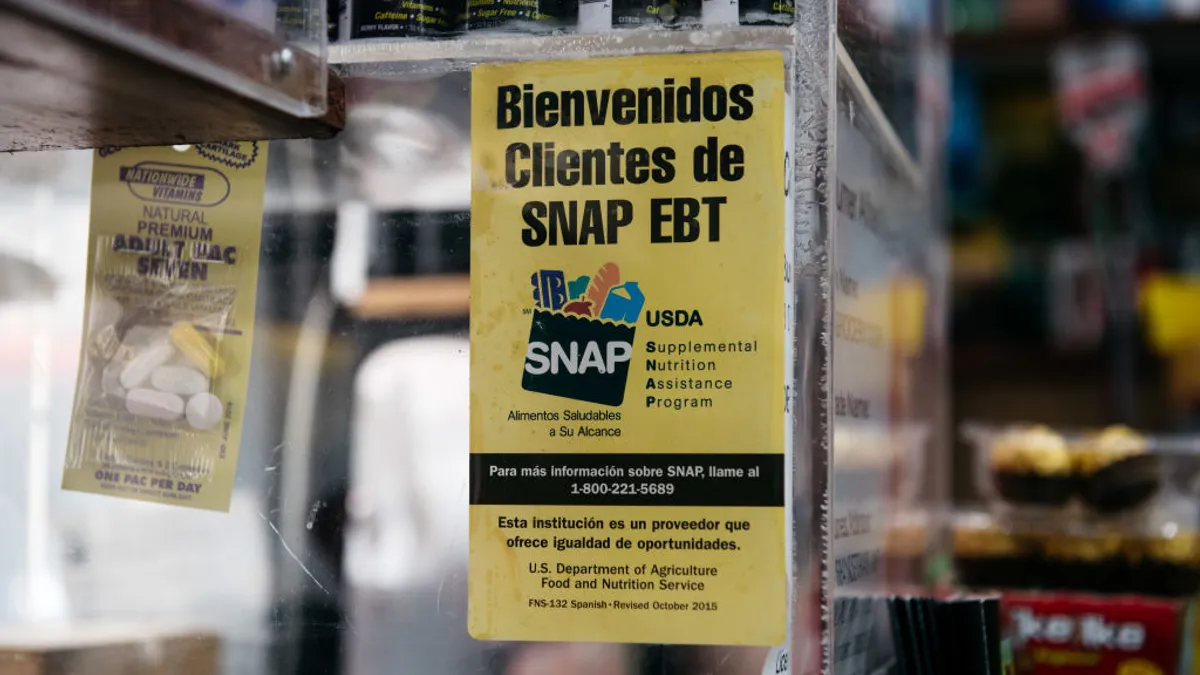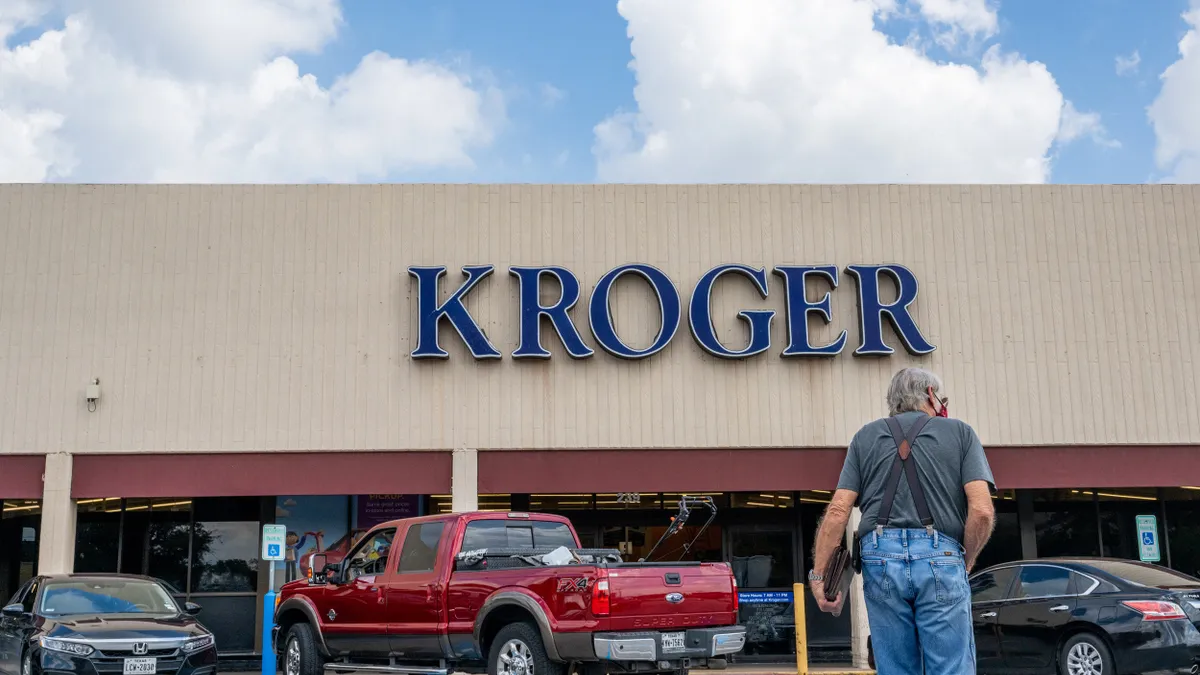After a seven-month search and a 10-month gap in permanent leadership, Sprouts found a leader who seems to check all the boxes.
Jack Sinclair has considerable operational experience, a knack for running small stores and a history of advocating for natural and organic products. In his eight years as head of Walmart's U.S. grocery division, he spearheaded the growth of the company's Neighborhood Market format, which now comprises 689 stores across the country. He also pushed the world's largest retailer to improve the quality of its produce and other perishables, and to usher more organic products onto its shelves.
In his time at 99 Cents Only Stores, including a year serving as CEO, Sinclair also pushed for a broader, higher-quality assortment of fresh foods.
"He's a guy who really understands the food market and he's had some challenging situations that he’s been successful in," said Neil Stern, senior partner with McMillanDoolittle, in an interview with Grocery Dive.
Sinclair's focus on fresh foods fits right in with Sprouts, and Stern and other sources agree that the company's long search yielded a uniquely qualified leader. But Sinclair faces numerous challenges at the helm of a company that's rapidly expanding while also fighting to prove its value to shoppers and investors.
A leader in fresh food
Central to Sinclair's grocery expertise is the role he held as executive vice president of Walmart's U.S. grocery division from 2007 to 2015. During that time period, the company grew its Neighborhood Market store footprint significantly, with hundreds of new locations built during Sinclair's tenure. The format saw impressive sales growth, though that momentum has cooled lately. Walmart closed several stores earlier this year.
Sinclair also spearheaded efforts to put more natural, local and organic products in stores and to more efficiently source these products. In 2014, the company began carrying Wild Oats organic grocery items, priced about 25% below other brands of organic foods. In a company blog post from the launch, Sinclair wrote that Walmart wanted to reposition itself as a destination for organic groceries.
In 2011, influential food writer and expert Michael Pollan named Sinclair one of the world's seven most powerful foodies contributing to American food reform. As a Walmart executive, Sinclair delivered a TED talk about sustainability and global food production.
"The challenge as we think about the food industry is very much about taking a holistic view," Sinclair said during the talk. "The interdependency of the food industry is something I come across a lot."
Chris Mandeville, senior vice president at financial services firm Jefferies, wrote in a research note that Sinclair's experience running small-format stores like 99 Cents Only and Neighborhood Market bodes well for Sprouts.
"His lengthy experience within discount and grocery should bring significant knowledge to the table," Mandeville wrote.
Mandeville also credits Sinclair with impressive comp growth during his time as CEO, and Stern agrees. "I think he’s done a pretty credible job of turning at least the comps around at 99 Cents Only," Stern said.
A "tweak" to company strategy
Sprouts is growing at a clip of around 30 stores a year and has its sights set on disrupting conventional grocers up and down both coasts. This month, Sprouts opened its first stores in New Jersey and Louisiana. It's also working to roll out an "enhanced" store format focused on a better customer experience and more deli, meat and seafood offerings.
While plans to open 28 stores this year are solidified, Sinclair may look to adjust strategy beyond this year. Mandeville noted in another report that management said on a call following Sinclair's appointment that it expects the new CEO to "tweak" the company’s current strategy rather than overhaul it completely.
Stern thinks Sinclair will want to reevaluate expansion plans and look at whether or not Sprouts can continue along its aggressive expansion path in new and existing markets.
"Both are challenging, but new stores in new markets is doubly challenging because you have to both get the stores open successfully but also build the brand and build what the brand is about," Stern said.
Bryan Gildenberg, chief knowledge officer at Kantar Consulting, noted that Sinclair will also need to examine Sprouts' operations to ensure it can scale profitably, which has not been the company’s strength to date, he said.
"I think Sprouts is at a point in its life cycle where the ability to manage a fast-growing company is critical, and so is the ability to build processes and systems that help it sustainably scale," Gildenberg told Grocery Dive.
Challenges in the boardroom and the stock market
The Sprouts model, which combines an emphasis on produce with reasonable prices and a limited-size box, has resonated with shoppers. The company's recent emphasis on private label and prepared food offerings is helping boost margins. Sprouts beat sales expectations in its most recent earnings report, though comparable-store sales growth has slowed considerably over the past year.
The company's stock price, meanwhile, remains one of the worst in retail, according to Burt P. Flickinger III, managing director at Strategic Resource Group. After reaching a high of nearly $30 a share following strong earnings last fall, Sprouts' stock price has fallen nearly 40%.
"For a company that should be doing better than everybody in retail, it's not," Flickinger told Grocery Dive.
Executive instability could be partly to blame, Flickinger said, and could pose additional challenges for Sinclair. The company has lacked consistent leadership since former CEO Amin Maredia resigned at the end of 2018. Chief operating officer Jim Nielsen is taking a medical leave of absence. With Sinclair's appointment came news of the departure of interim co-CEO and CFO Brad Lukow and co-founder Shon Boney from the board of directors.
"I think Sprouts is at a point in its life cycle where the ability to manage a fast-growing company is critical, and so is the ability to build processes and systems that help it sustainably scale."

Bryan Gildenberg
Chief knowledge officer, Kantar Consulting
Investors have also been skittish about Sprouts' exposure to Whole Foods stores, though Gildenberg said the market overlap isn't as bad as many make it out to be.
In addition to resolidifying the leadership structure, Flickinger said Sinclair should expand Sprouts' board of directors to include more direct grocery experience. He said Sprouts' current board of directors is too small and lacks experience in fresh food retailing and knowledge of organics.
"There’s a real opportunity for Jack Sinclair and Sprouts to expand the leadership over Whole Foods from a fairly good leadership ... to potentially a really great leadership," Flickinger said.
A good fit for the future
Despite investor uncertainty and C-suite turnover, Sprouts has a strong choice in Sinclair and a good fit for the company's core model, Gildenberg said.
He pointed to Sinclair's time with Walmart as a defining point, especially his commitment to bringing more affordable fresh, organic produce into the stores. Gildenberg noted that during that period, Walmart realized it needed to do a better job of democratizing healthy living through food.
"One of the things they started to do with the supercenter format was get a better understanding of how to raise their game in perishables," Gildenberg said. "Jack and his team did a really good job at Walmart of raising the perishables quality."
However, Gildenberg noted that Sprouts will have to carefully consider how to win in non-perishables. Sprouts' lack of exposure here has been an asset as sales have favored perishables departments, Gildenberg said, but customers are giving categories like frozen foods a second look. Sprouts also needs to have a broad everyday assortment in order to become a regular grocery destination, he said.
Competition in the natural and organic grocery space is not going away, but Sprouts' successful model and ongoing expansion have laid a promising foundation, Gildenberg noted. Sinclair will need to hit the ground running, but if he makes the right moves, the company could see its stock performance improve as it siphons traffic away from the industry's giants.






















